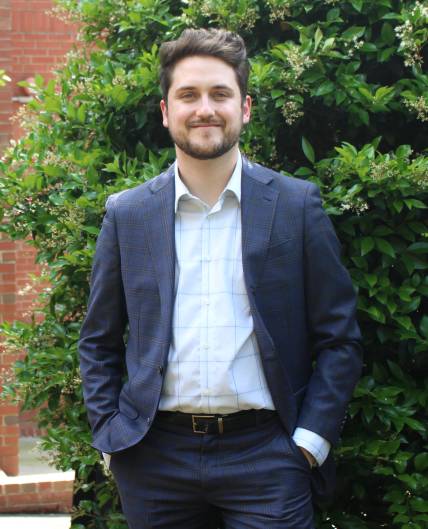Student Spotlight: Jacob Olander (MPA-PNP 2026)

Jacob Olander (MPA-PNP 2026), communications chair, Wagner Philanthropy
Can you share a bit about yourself and tell us why you chose to attend a school of public service?
When I was an undergraduate student at the University of Virginia, I became fascinated by the paradoxes of American democracy. How can a country founded on the Declaration of Independence, which enshrines the ideals of equality under the law, continuously reckon with legacies of injustice? Furthermore, what can public servants do to create a more inclusive and vibrant democracy? This line of questioning led me to conduct elections research at the Center for Technology and Civic Life, an organization that partners with Google and Vote.org to push verified election information to low-propensity voters. At CTCL, I fell in love with pro-democracy research. I quickly realized I wanted to develop stronger skills in quantitative research design and data analytics to more fully contribute to voting rights advocacy. Wagner represented the perfect opportunity to become a more mature researcher and policy advocate within the elections and voting rights field.
Reflecting on your experience so far, are there any specific lessons or skills that you will take with you after leaving Wagner?
From a research standpoint, my economics, multiple regression, and econometrics coursework have equipped me to interpret and digest policy research at a higher level of analytical rigor. I also really appreciate Wagner’s curricular focus on financial management and analysis. While finance was not an interest of mine before Wagner, I am grateful to have an understanding of fundamental public finance principles. Lastly, I have appreciated learning more about program theory and evaluation, which is critical to assessing which programs are working as intended in the world of pro-democracy policy.
What inspired you to get involved with Wagner Philanthropy?
Democracy does not begin and end at the ballot box. To sustain a culture of democracy defined by justice, many educational, cultural, and community institutions must be met with proper funding. Philanthropy represents an opportunity to create a more just and equitable society by redistributing wealth and funding the programs that fuel civic engagement. I often look to the Freedom Together Foundation and Democracy Fund to see how philanthropic organizations can empower systems change.
Which Wagner Philanthropy event has been your favorite so far? Which event are you looking forward to the most?
Last semester, Wagner Philanthropy hosted a fundraising workshop where attendees learned how to make a funding request from experts in the field. It was a fascinating skill-building exercise and learning experience.
This semester, I am looking forward to our upcoming panel on reparations on April 11, where we will hear a panel of experts discuss the case for reparations and the policy frameworks we can adopt to achieve racial wealth equity. Moreover, the event will focus on the important roles of philanthropy and social innovation in the fight for reparations. Everyone should register for the event here!